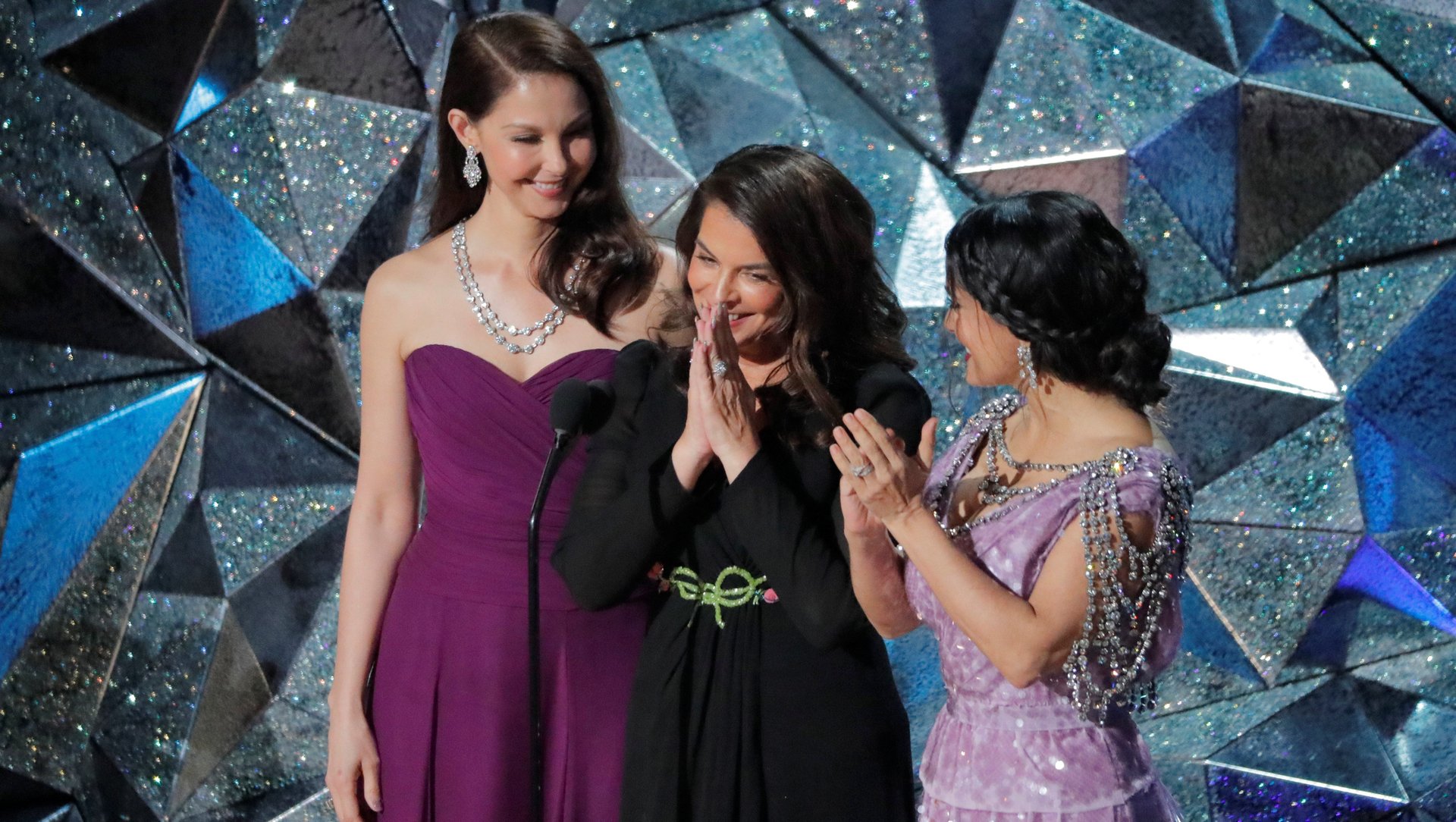About that #HereWeAre commercial: Is Twitter finally doing something about harassment?
Last night, Twitter aired a 90-second commercial during the Academy Awards, featuring an original poem written and performed by Denice Frohman, interlaid with a montage of women, ranging in age from their 20s to their 80s, including Hollywood heavyweights like Ava DuVerney and Issa Rae. “I heard a woman becomes herself the first time she speaks without permission,” Frohman began the poem.


Last night, Twitter aired a 90-second commercial during the Academy Awards, featuring an original poem written and performed by Denice Frohman, interlaid with a montage of women, ranging in age from their 20s to their 80s, including Hollywood heavyweights like Ava DuVerney and Issa Rae. “I heard a woman becomes herself the first time she speaks without permission,” Frohman began the poem.
The commercial announced Twitter’s #HereWeAre campaign; the hashtag was originally created by chief marketing officer Leslie Berland to comment on the lack of women speakers at the 2018 Consumer Electronics Show in Las Vegas.
Twitter tweeted out the commercial with a statement declaring solidarity with women making their voices heard (presumably by tweeting, of course).
As reported by Adweek, there was a 50% increase in tweets about women’s issues, equality, and feminism over the past six months. The surge began with revelations about the alleged behavior of Hollywood producer Harvey Weinstein; on Oscar night—where Weinstein accusers Ashley Judd, Salma Hayek, and Annabella Sciorra took the stage to deliver a #TimesUp message—Twitter seized the moment to make a statement about solidarity with women. Its efforts were well-received. Bustle called the poem “incredible moving.” Entertainment Weekly said it was “powerful.” The Miami Herald said it “gave viewers the chills.” And celebrities like actress Laura Dern and supermodel Karlie Kloss tweeted in support of #HereWeAre.
But as noted by the Washington Post, the ad was in some corners seen as hypocritical and self-serving, an empty gesture in light of Twitter’s apparent tolerance of harassment on the platform. Through 2016, for example, the actress Leslie Jones was harassed by online trolls, including right-wing provocateur Milo Yiannopoulos, to the point that Jones temporarily left the platform. She begged Twitter to improve its policies on harassment, asking for a proactive stance instead of decisions on occasion to freeze abusive accounts after they’d been reported.
Twitter’s response has been rocky at best. Last year, actress Rose McGowan was temporarily suspended from Twitter for tweeting out a screenshot that included a private phone number, which violates the platform’s terms of service. The decision prompted thousands of women to promise to boycott the platform, accusing Twitter of hypocrisy for suspending McGowan for a phone number while not suspending any of her many online trolls. And these are just the experiences of two famous, wealthy women with more resources and attention than most.
Unlike movements like #TimesUp, which includes a $21 million legal defense fund to subsidize support for men and women who have experienced harassment, assault, or abuse in the workplace, #HereWeAre is a corporate movement, not a grassroots one, and the specific objectives are hazy. Perhaps it means that Twitter will do a better job holding itself accountable to women when they are harassed on the platform.